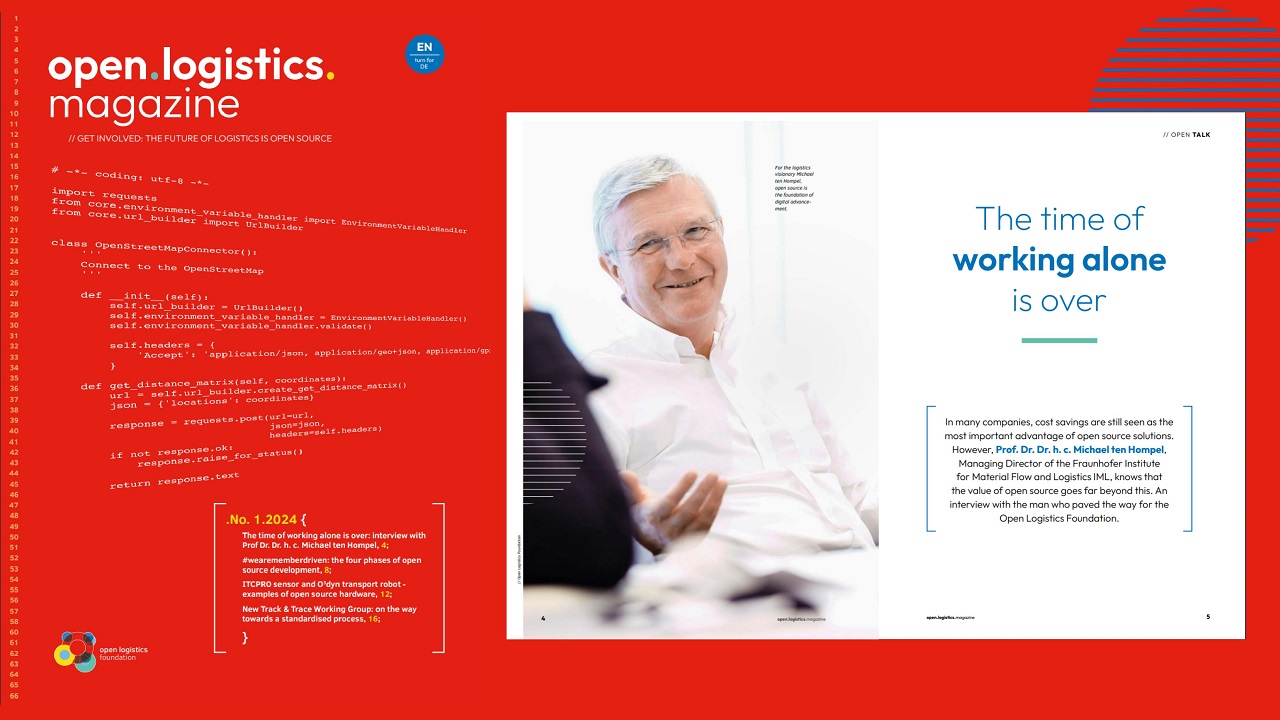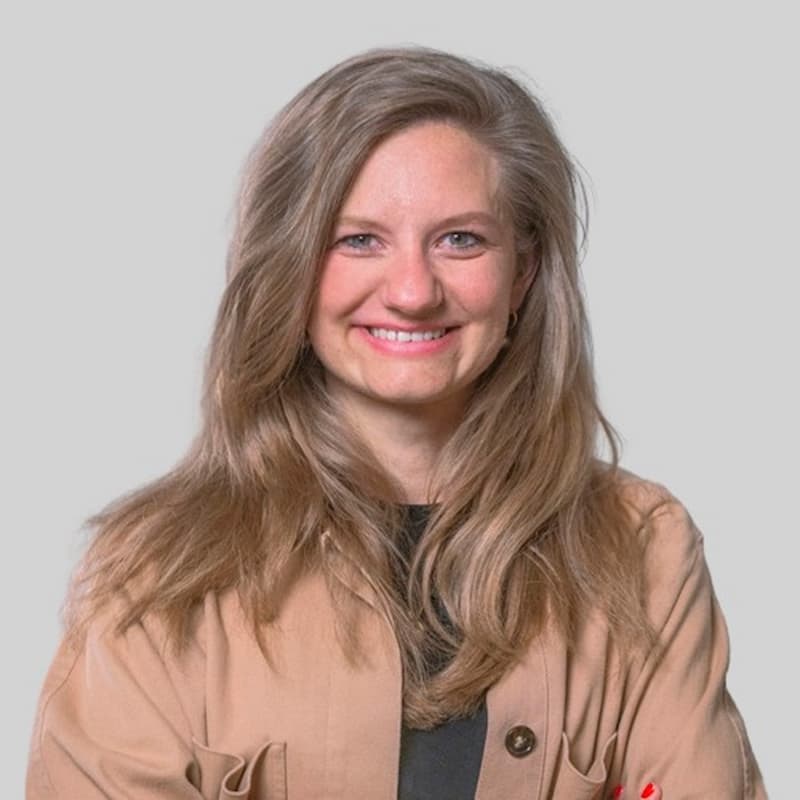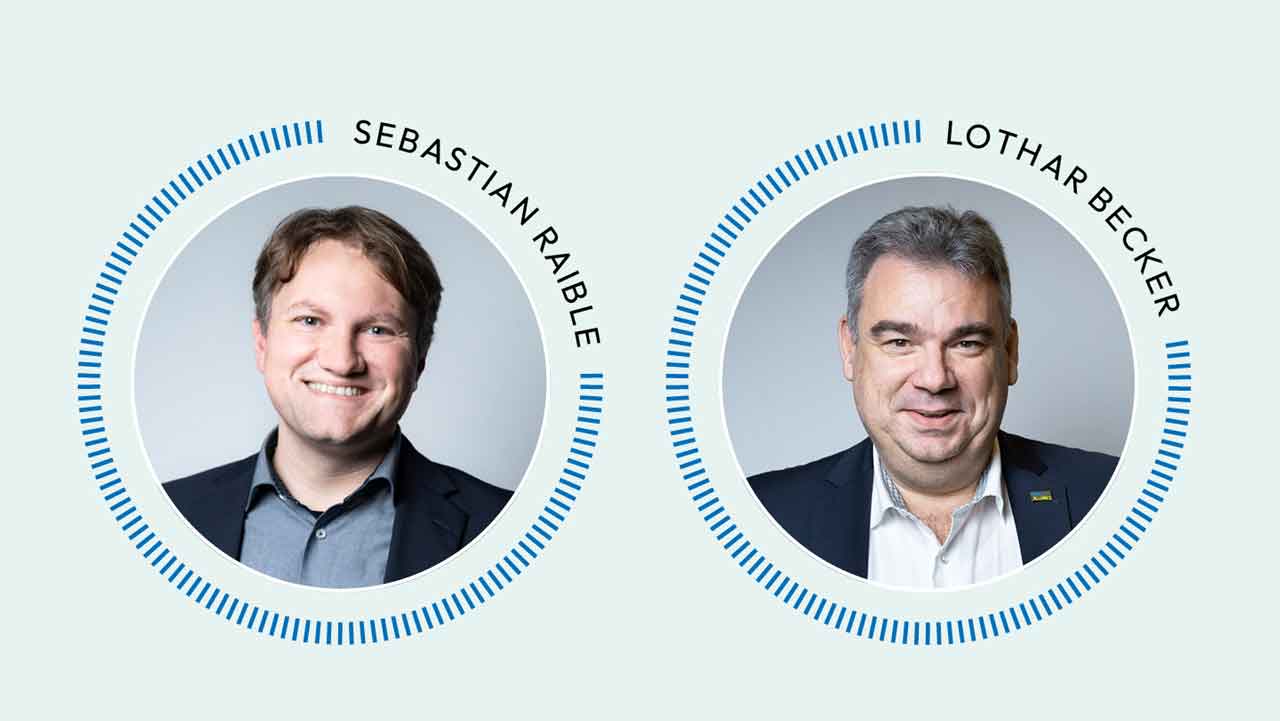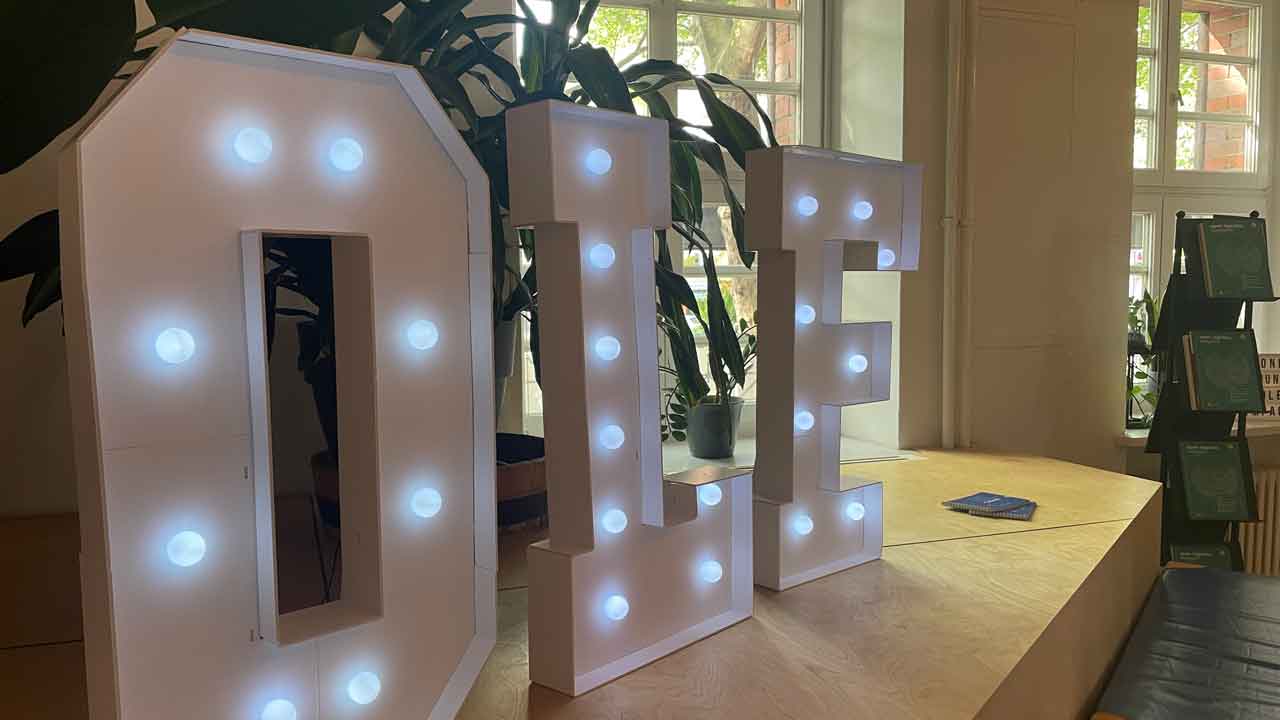The development of common standards or large AI models requires active collaboration in the community.
Several years ago, open source software became essential to the modern economy. Almost all current software solutions rely on open source solutions to a lesser or greater extent, embedding, supplementing, or transforming them. This also applies to companies in the logistics industry. However, the Open Logistics Foundation has taken open source to a new level for the industry: from a pure IT topic to a business model. Professor ten Hompel, a few years ago, you told companies: “The time of working alone in logistics is over”. Has your appeal been fulfilled with the establishment of the Open Logistics Foundation?
At least those involved in the Open Logistics Foundation are no longer alone; that is something new. When we at Fraunhofer IML started to promote the establishment of an organisation in the logistics industry at the beginning of the 2020s, in which companies could jointly develop software and hardware, most companies were still wasting a lot of energy, time and money on programming the same interface for the hundredth time instead of agreeing on a common standard. As a strategic approach, few companies were aware of open source. With the Open Logistics Foundation, we created a framework and an environment where digitalisation can be considered and implemented across companies. I am delighted that the Fraunhofer IML, with the BMDV-funded “Silicon Economy” project, has made a decisive contribution to logistics defining the future together today.
What exactly do you see as the (added) value in open source?
For me, open source is, first and foremost, a cooperation and collaboration model. And it is precisely these forms of joint work that we need today. The scale of digital transformation exceeds what a single company can achieve. It is now a question of creating common standards and utilising developments in artificial intelligence to survive the platform economy that we call the Silicon Economy. Today, a company must work together with other companies to succeed.
Nevertheless, many companies still have the impression that they are giving away their developments if they make them available to the general public as open source. What do you have to say to these companies?
Today, more than ever, you don’t stay the market leader – you become it repeatedly! Look around and see how many established companies face difficulties because they have not recognised the changing times. New products and new markets follow technological developments, and this is happening faster than ever. A company risks being left behind if it does not get involved in open source developments. Companies that actively participate and develop open source software also have the opportunity to set new standards – true to the motto: Those who participate now set the direction and don’t have to be mandated in the future.
At the same time, open source contributions to a German foundation such as the Open Logistics Foundation should be tax-deductible. Open source is no universal cure, but it is an opportunity. And it is high time to give the German economy the chance to position itself competitively in a Silicon Economy.
“DIGITALISATION IS THE GOAL, AND OPEN SOURCE IS THE KEY TO TAKE ALL COMPANIES WITH US, REGARDLESS OF SIZE AND INDUSTRY.”
Prof. Dr. Dr. h. c. Michael ten Hompel
Artificial intelligence is currently emerging as a driver for open source developments …
In fact, a lot of open source projects are being developed in the field of AI, and I am convinced that this will continue in robotics and large language models. At the Lamarr Institute, for example, we use OpenGPT-X, a European language model with many billion parameters and a language base of over 1 trillion tokens – not the worst basis for building your own chatbot. But if you want to play along, leave the spectator stands and get on the playing field.
A game also needs rules …
This is why the Open Logistics Foundation has emphasised neutrality in the development participation of all interested parties from the beginning. On the contrary, the German foundation is not backed by a business purpose or a single company that wants to monopolise the market for itself. It is about generating new opportunities for everyone. Utilising these opportunities is, in turn, an individual entrepreneurial decision.
The basic attitude towards open source software is positive in most companies, as many studies and surveys, such as the Open Source Monitor of the digital association Bitkom or the expertise of the German National Academy of Science and Engineering acatech on the topic of open source in Industry 4.0, now show. What do companies still need as tools to shape open source actively?
In many personal conversations, I have found that companies are now aware that joint effort is required and that open source is essential for digitalising and automating logistics. In my opinion, the best starting point is participation in an open source community such as the Open Logistics Foundation. At Fraunhofer IML, however, we have also set up a format that pays particular attention to the open source concept: the new Open Enterprise Labs, in which science and industry – a maximum of five companies per lab – work together on open source solutions and adapt them to a specific use case or new product. We contribute our expertise as a research partner, as well as in managing open source projects. The companies set their own goals. We help with agile development.
Carina Tüllmann, COO of the Open Logistics Foundation, asked the questions.
Prof. Dr. Dr. h. c. Michael ten Hompel holds the Material Handling and Warehousing Chair at the Technical University of Dortmund and is Managing Director of the Fraunhofer Institute of Material Flow and Logistics. He is also a member of the Board of Directors of the Lamarr Institute for Marching Learning and Artificial Intelligence, a member of the National Academy of Science and Engineering, and the main board of the digital association Bitkom, among others. He is also the author and editor of numerous textbooks on logistics and IT and coeditor of Lecture Notes in Logistics (Springer).
This interview was published in the third edition of the Open Logistics Magazine. You can read the entire magazine and register for future editions here.





